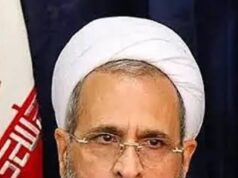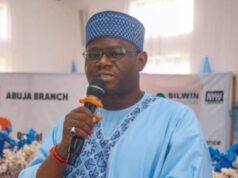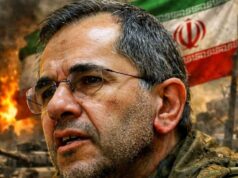 President of Organization of Petroleum Exporting Countries (OPEC) and Nigeria’s Petroleum minister, Diezani Alison-Madueke has confessed that with the fall in crude oil prices across the globe, competition by countries to gain markets is becoming tough.
President of Organization of Petroleum Exporting Countries (OPEC) and Nigeria’s Petroleum minister, Diezani Alison-Madueke has confessed that with the fall in crude oil prices across the globe, competition by countries to gain markets is becoming tough.
Diezani, who spoke to newsmen at the Presidential Villa, Abuja today, said that this is a very challenging time for OPEC and for the global crude oil wells as a whole.
“Quite clearly, there has been a battle of wills between certain OPEC countries, the big players and certain non-OPEC countries who are big players in the world crude oil production markets at this time.
“So it is a challenging time to take over as OPEC President at this time and our prayer of course is that we will be able to stabilise the crude oil prices per barrel over this period because it is critical as many countries both OPEC and non-OPEC countries are suffering immensely. Even as we speak, Venezuela has gone into austerity measures and is measuring food because they were completely dependent on oil. Angola, Algeria Iran are all under duress as is Nigeria because it has affected our budgetary benchmark.
“And even non-OPEC countries like Russia who will not cut production are already seeing a drop in the value of their rubuck. So it is quite impactful on OPEC prices and what OPEC does in the global oil market. And so we will be watching very closely as president of OPEC at this time at what point we have to call OPEC Extra Ordinary meeting and reconvene to see whether other strategies can be put into play.”
The OPEC President spoke on the effect of the fall in prices on Nigeria’s economy, saying that Nigeria has to be much more competitive this time and going into the future.
“We cannot continue to do business as usual. We must ensure that we have the right enabling parameters
and indicies in this country to attract the right end user markets; end user demand for our products because there are so many other countries that would be competing for those end user markers.
“So we will have to sit down and reformulate our entire approach over the next month or so. In fact, we need to do that immediately to ensure that we are in fact at the cutting edge of competitiveness.
“We need to make ourselves competitive in the market and we are able to garner and take those end user markets.”
Diezani confessed that she would not have been elected OPEC’s President if President Goodluck Jonathan had not had the courage to appoint a woman into the portfolio of Ministry of Petroleum Resources, which made her to head the country’s delegation to OPEC.
“It happened about three and half years ago when I went into OPEC that was completely male dominated and mostly Arab dominated as well.
“But I have found that they have come to respect me and Nigeria’s voice over the last three years in OPEC is very highly. The position of presidency some years ago was administratively made rotational but OPEC ensures that it must still elect, therefore, it states very clearly that ‘we have elected’ Diezani Alison-Madueke or whoever happens to be the President for that year into the position of the Presidency of OPEC.” She said that OPEC reserves the right to reject any Minister, head of delegation or person put forward by their country whom OPEC feels is not of the right capabilities and experience and level to sit as OPEC President. This is because, she said, OPEC’s presidency is highly influential and is a high ranked position to that of the secretary General.
The Nigeria petroleum helms woman said that It is the OPEC President that sits as Chairman of all OPEC conferences at all times during that year, adding that it is the OPEC President that calls for extraordinary meetings of OPEC which will possibly happen in the next quarter of next year if the downward trend in crude prices continue amongst other things.
[myad]






